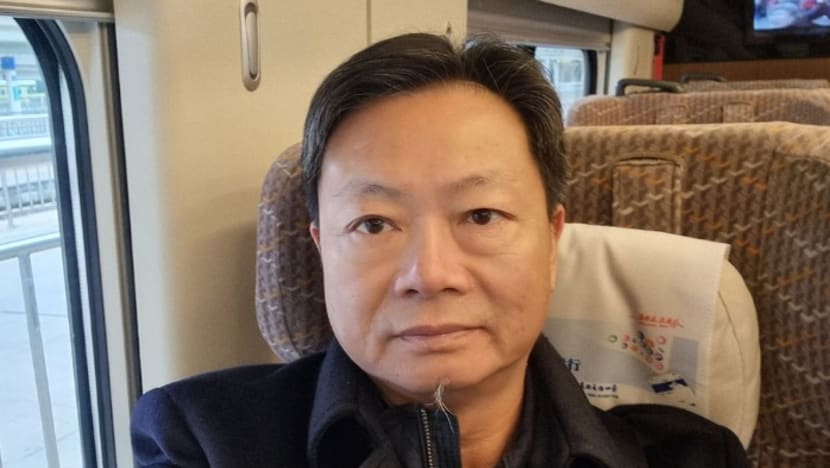Singaporean businessman designated as 'politically significant person' under foreign interference law
As a designated PSP, Philip Chan Man Ping is required to disclose annually political donations of S$10,000 (US$7,400) or more that he receives and accepts, foreign affiliations and migration benefits.

Singaporean businessman Philip Chan Man Ping, in a photo posted on Jan 24, 2024. (Photo: Instagram)

This audio is generated by an AI tool.
SINGAPORE: Singaporean businessman Chan Man Ping Philip has become the first person to be designated as a "politically significant person" (PSP) under a law to counter foreign interference.
It comes about three weeks after he was served a notice informing him of the authorities' intention to do so and giving him 14 days to submit representations.
The Ministry of Home Affairs (MHA) said on Monday (Feb 26) that the Registrar of Foreign and Political Disclosures had considered the representations that Mr Chan had submitted.
"The registrar remains of the view that Chan should be designated as a PSP, as Chan’s activities are directed towards a political end in Singapore, and, in the registrar’s opinion, it is in the public interest for countermeasures under FICA to be applied to Chan," said the ministry.
MHA did not elaborate on the representations submitted by Mr Chan, 59. It also did not specify the political end his activities were directed toward.
"Politically significant persons" can include political parties, political office holders, Members of Parliament, election candidates and their election agents.
Mr Chan's case falls under a provision to designate individuals as a PSP if their activities are directed towards a political end, and it is in the public interest for the authorities to apply countermeasures under Section 48(1) of the Foreign Interference (Countermeasures) Act, known as FICA. The provisions came into force in December 2023.
Mr Chan, who was from Hong Kong and became a naturalised Singapore citizen, was informed of his designation on Monday. It comes into effect on the same day.
He has one month to appeal to the Minister for Home Affairs against the registrar's decision, MHA said in response to queries from CNA.
When asked by CNA if he intends to appeal, Mr Chan declined to comment.
MHA said that as a designated PSP, Mr Chan is required to disclose annually political donations of S$10,000 (US$7,400) or more that he receives and accepts, foreign affiliations and migration benefits to the registrar.
"These are transparency requirements to help detect foreign interference," it added.
MHA said earlier this month that Mr Chan, who immigrated from Hong Kong in 1990, is the first person to be served a notice of intended designation under FICA provisions which came into force in December last year.
The ministry previously said the registrar assessed that Mr Chan "has shown susceptibility to be influenced by foreign actors, and willingness to advance their interests".
Mr Chan heads the Hong Kong Chamber of Commerce in Singapore and has been the president of the Kowloon Club since 2011. He is also the managing director of three property firms.
He has also been involved in grassroots and fundraising efforts in Singapore for over a decade, and was a patron of the Kampong Chai Chee Citizens' Consultative Committee and the Bukit Timah Community Club Management Committee.
He stepped down from all grassroots appointments after MHA's announcement on Feb 2.
It was not revealed when Mr Chan became a Singapore citizen. Home Affairs Minister K Shanmugan said in a written parliamentary reply on Monday that the ministry generally does not disclose such information for reasons of confidentiality.
Responding to a question from the Progress Singapore Party's Leong Mun Wai on when Mr Chan was registered as a permanent resident and naturalised as a Singapore citizen, Mr Shanmugam said: "In this specific case, the events which led to the designation of the individual took place much after his naturalisation; and we do not think it appropriate to make an exception to the principle of confidentiality."















